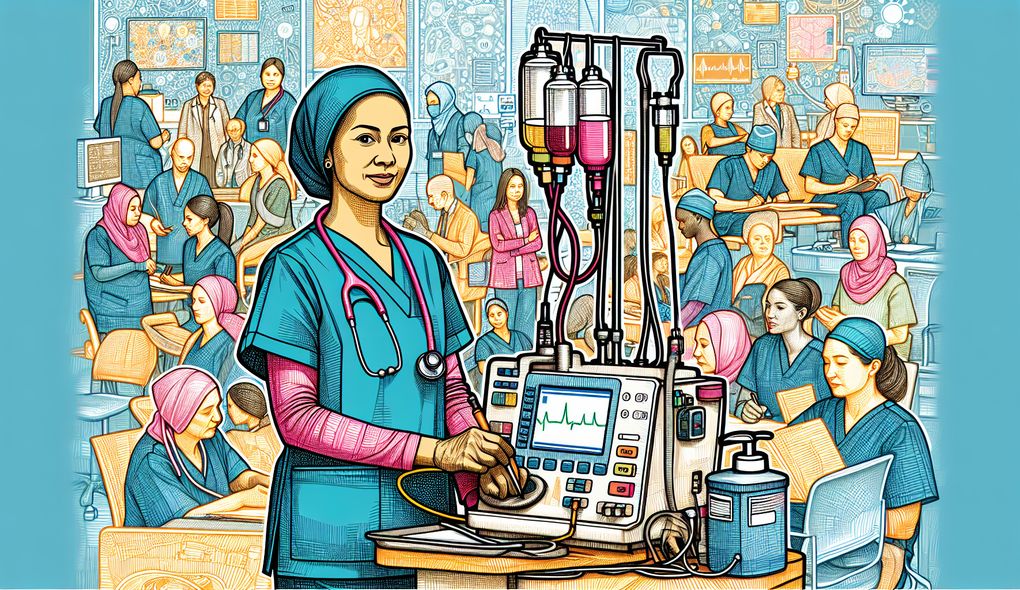How do you monitor patient response to therapy and report findings to the healthcare team?
JUNIOR LEVEL

Sample answer to the question:
As an Oncology Nurse Practitioner, I closely monitor the response of patients to therapy. I regularly assess their condition, conduct physical examinations, and analyze their lab results. I also communicate with patients to understand any changes in their symptoms or side effects. To report findings to the healthcare team, I collaborate with physicians, nurses, and other healthcare professionals during rounds, conferences, or through electronic medical records. I ensure that detailed information about the patient's response to therapy is accurately recorded and communicated to the team, allowing for informed decision-making regarding adjustments to treatment plans.
Here is a more solid answer:
As an Oncology Nurse Practitioner, I have honed my clinical skills to effectively monitor patient response to therapy. I conduct thorough assessments, including physical examinations and comprehensive reviews of their medical histories. I closely analyze lab results and diagnostic tests to track progress and identify any adverse effects. Communication plays a crucial role in this process, as I regularly communicate with patients to understand any changes in their symptoms, side effects, or concerns. To ensure accurate reporting of findings, I collaborate closely with physicians, nurses, and other healthcare professionals during rounds, conferences, or through electronic medical records. I provide detailed and concise information about the patient's response to therapy, including any observed improvements or challenges. Additionally, my knowledge of different cancer treatment modalities helps me identify potential complications and side effects, allowing for timely interventions. My high degree of empathy and emotional intelligence allow me to effectively support patients through the therapy process, addressing their emotional and psychological needs along with their physical well-being.
Why is this a more solid answer?
The solid answer provides more specific details about the candidate's clinical skills, communication strategies, collaboration techniques, and knowledge of cancer treatment modalities. It emphasizes the candidate's ability to conduct thorough assessments, analyze lab results, and effectively communicate with patients to understand their symptoms and concerns. The answer also highlights the candidate's collaboration with the healthcare team, providing concise and detailed information to assist in decision-making. Furthermore, it mentions the candidate's knowledge of cancer treatment modalities and their ability to address the emotional and psychological needs of patients.
An example of a exceptional answer:
As an Oncology Nurse Practitioner with a specialization in cancer care, I employ a comprehensive approach to monitor patient response to therapy and report findings to the healthcare team. My clinical skills and experience enable me to conduct in-depth assessments, including physical examinations, meticulous review of medical histories, and analysis of lab results. I am proficient in using diagnostic tools to track tumor markers, imaging studies to evaluate disease progression, and genetic testing to identify potential treatment targets. I employ evidence-based practice guidelines and apply my knowledge of various cancer treatment modalities to anticipate potential side effects, complications, and drug interactions. Communication is fundamental in my role, and I employ a patient-centered approach to actively listen to patients, address their concerns, and educate them about treatment plans and self-management strategies. To ensure accurate reporting of findings, I collaborate closely with the healthcare team, actively participating in multidisciplinary rounds, tumor boards, and care conferences. I leverage technology to document and share information using electronic medical records and secure messaging systems. In addition to monitoring physical responses, I am adept at assessing patients' emotional well-being, providing supportive care, and connecting them with appropriate psychosocial resources. My dedication to empathy, compassion, and patient advocacy drives me to advocate for necessary adjustments to treatment plans, ensuring optimal outcomes for each patient.
Why is this an exceptional answer?
The exceptional answer provides even more specific details about the candidate's clinical skills, experience, and knowledge of cancer treatment. It highlights the candidate's proficiency in using advanced diagnostic tools and techniques to monitor patient response to therapy. The answer mentions the candidate's ability to employ evidence-based practice guidelines and their knowledge of various cancer treatment modalities to anticipate potential side effects, complications, and drug interactions. Furthermore, it emphasizes the candidate's patient-centered approach to communication, their active participation in multidisciplinary rounds and conferences, and their use of technology for accurate documentation and information sharing. The exceptional answer also mentions the candidate's ability to assess and support patients' emotional well-being. Overall, it showcases the candidate's advanced skills, knowledge, and dedication to providing holistic care to patients.
How to prepare for this question:
- Review and refresh your knowledge of different cancer treatment modalities and their associated side effects.
- Familiarize yourself with common oncology lab tests and their implications.
- Practice active listening and empathy skills to effectively communicate with patients.
- Research the latest advancements in cancer care and treatment to stay updated with current practices.
- Reflect on past experiences and identify situations where your collaboration with the healthcare team led to positive patient outcomes.
What are interviewers evaluating with this question?
- Clinical skills
- Communication
- Collaboration
- Knowledge of cancer treatment
- Empathy
- Emotional intelligence

